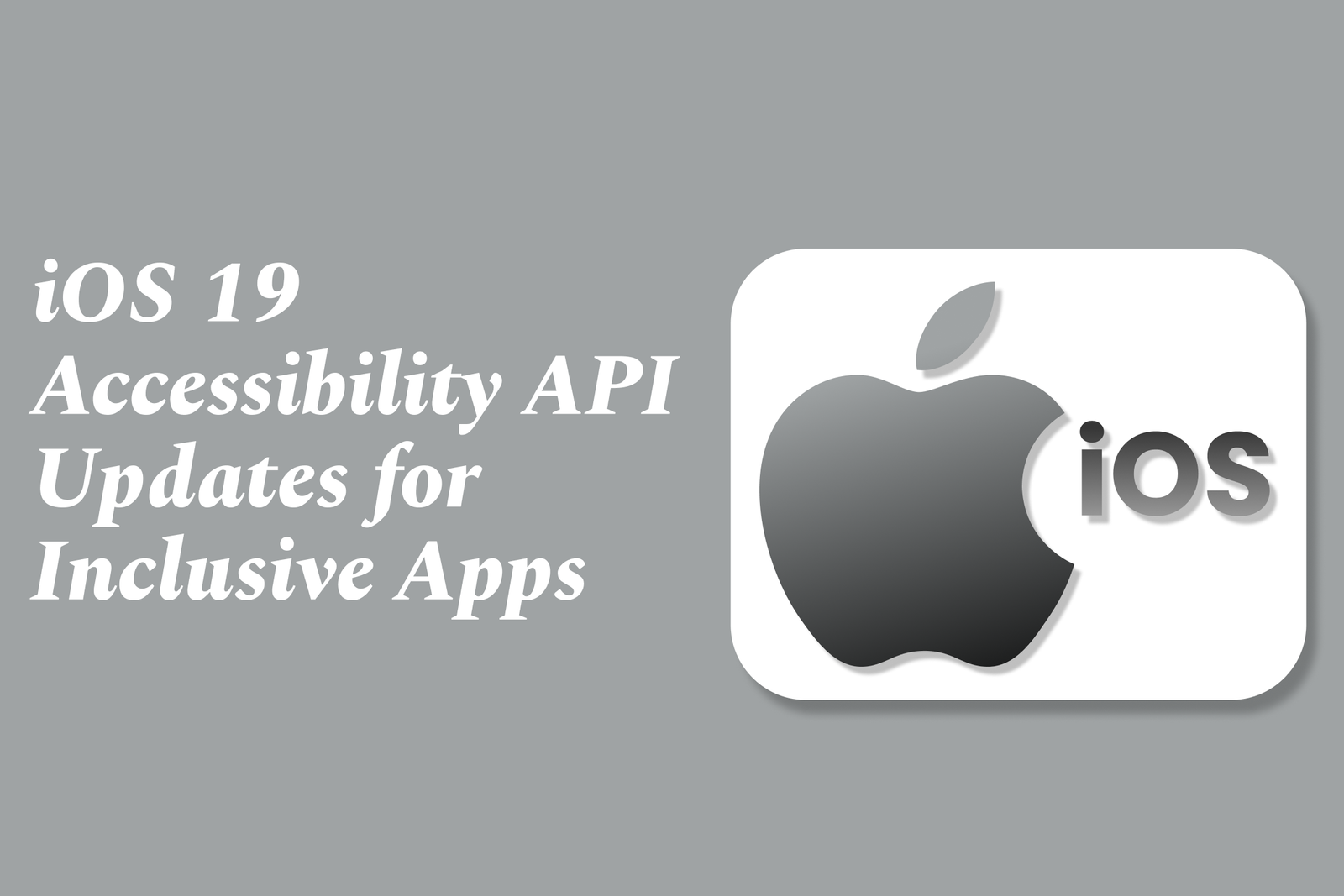iOS 19 accessibility API updates for inclusive apps
iOS 19 Accessibility API updates enhance app inclusivity by offering improved VoiceOver support, advanced gesture recognition, adaptive UI elements, and better integration with assistive devices, enabling developers to create more accessible, user-friendly experiences for everyone.
iOS 19 Accessibility API Updates for Inclusive Apps
1 ) Enhanced Accessibility Frameworks
iOS 19 introduces significant updates to its Accessibility APIs, empowering developers to create apps that better cater to users with diverse abilities. These improvements focus on providing richer, more descriptive information and interactions across all supported Apple devices.
2 ) Improved VoiceOver Integration
Developers gain access to more granular control over VoiceOver features, including enhanced customization of hints, labels, and dynamic descriptions. This ensures that users relying on screen readers receive clearer context and smoother navigation within apps.
3 ) Expanded Support for Assistive Technologies
The updated APIs offer better integration with a wider range of assistive devices and input methods—such as switch controls and hearing aid compatibility—making apps more adaptable to different user needs.
4 ) Advanced Gesture Recognition
New frameworks enable recognizing complex and customizable gestures, allowing app interfaces to respond to alternative input styles that accommodate motor impairments.
5 ) Adaptive User Interface Elements
iOS 19 encourages the use of adaptive UI components that automatically adjust their layout, contrast, and size based on user preferences and accessibility settings, enhancing readability and ease of use.
6 ) Seamless Cross Device Accessibility
With the ecosystem wide enhancements, accessibility features now interoperate more fluidly between iPhone, iPad, Mac, Apple Watch, and AirPods, ensuring consistent and inclusive experiences.
7 ) Developer Tools and Resources
Apple provides updated documentation, sample code, and testing tools to assist developers in implementing and validating these accessibility improvements effectively.
Summary:
The iOS 19 Accessibility API updates signify a major step forward in creating inclusive applications. By offering developers enhanced control, adaptability, and integration with assistive technologies, Apple enables the crafting of digital experiences that are accessible and enjoyable for all users.
https://justacademy.in/news-detail/education-apps-using-flutter-&-dart
https://justacademy.in/news-detail/trends-in-cross-platform-development-2025
https://justacademy.in/news-detail/new-ai-features-in-android-apps
https://justacademy.in/news-detail/flutter-community-meetups-in-2025
https://justacademy.in/news-detail/react-native-and-graphql:-a-match-made-in-heaven
Related Posts
Java supports GDPR and data privacy by enabling secure data handling through encryption, controlled access, and precise data management. It allows developers to minimize PII exposure, ensure data confidentiality, and design workflows that comply with data protection regulations effectively.
Java code quality tools have evolved to include advanced static analysis, integrated security checks, and AI-powered code reviews. These updates help developers detect bugs, enforce coding standards, and enhance security, streamlining the development process and improving overall code reliability.
Java remains a cornerstone in big tech companies, evolving with modern features like records, pattern matching, and virtual threads. Its robust ecosystem, enhanced performance, and growing AI integrations keep it vital for both legacy systems and innovative new projects.
Java and CI/CD pipeline optimizations streamline Java application development by automating builds, tests, and deployments. They improve efficiency through parallelization, caching, and secure secrets management, enabling faster feedback loops and more reliable, scalable software delivery.
Java supports modern cryptography standards through its flexible Java Cryptography Architecture (JCA), enabling integration of advanced algorithms like AES, EdDSA, and post-quantum tools. Libraries like Bouncy Castle offer FIPS-certified, hardware-accelerated implementations for secure development.
Java 23 enhances record patterns by enabling concise, direct destructuring of record components within pattern matching, simplifying type checks and data extraction. This improvement boosts code readability and expressiveness by reducing boilerplate in handling immutable data classes.
Java remains a top choice for mobile app backends, powering scalable, secure, and high-performance server-side solutions. Latest trends include cloud-native microservices, reactive programming, and enhanced JVM optimizations, enabling efficient, flexible, and robust mobile backend development.
Java SE 24 and LTS Java SE 21 offer enhanced features and performance, while Apache Spark 4.0.0 introduces Scala 2.13 support and advanced ML and SQL capabilities. Together, they empower developers to build scalable, high-performance data applications with modern tools.
JUnit 5 modernizes Java testing with a modular architecture, improved assertions, and seamless Java 8+ support. Beyond JUnit, tools like Mockito and AssertJ enhance mocking and assertions, creating a powerful, flexible ecosystem for writing clean, efficient Java unit tests.
Java plays a pivotal role in cloud automation tools by providing a robust, platform-independent language used to build scalable automation frameworks like Jenkins and Selenium, enabling efficient CI/CD pipelines, testing, and orchestration across diverse cloud environments.










